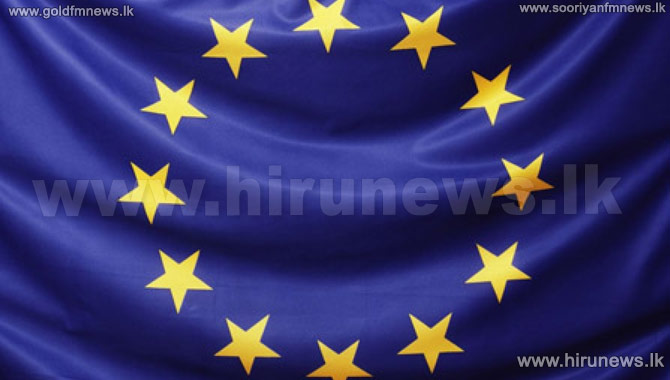Continued Stricter Border Checks In The Netherlands: A Trend Analysis

Table of Contents
Rise in Security Concerns as a Driving Force
The intensification of border security in the Netherlands is largely driven by escalating security concerns. The post-9/11 global security environment, coupled with subsequent terrorist attacks across Europe, has significantly impacted Dutch policy. The perceived threat of terrorism has led to a heightened focus on preventing the entry of individuals who might pose a risk.
Furthermore, growing concerns about illegal immigration and human trafficking have placed immense pressure on the Dutch government to strengthen its border control mechanisms. These concerns are not solely based on theoretical risks; they are fueled by real-world events and statistical data highlighting the challenges faced by the country.
- Increased instances of cross-border crime: Smuggling, drug trafficking, and other criminal activities necessitate a robust border security apparatus to effectively combat these threats.
- Enhanced cooperation with neighboring countries: The Netherlands actively collaborates with its European neighbors to implement coordinated border control strategies, sharing intelligence and resources to improve effectiveness.
- Public perception of security and the influence of media narratives: Public opinion, often shaped by media portrayals of security threats, plays a significant role in influencing government policy regarding border security.
These security concerns have translated into concrete policy changes. We've seen increased security measures at Schiphol Airport, including enhanced baggage screening and stricter passenger checks. Similar measures have been implemented at major train stations and seaports, reflecting a nationwide effort to bolster border security.
Impact on Travel and Tourism
The stricter border checks in the Netherlands have undeniably impacted travel and tourism. Increased waiting times at border crossings are now commonplace, leading to frustration and delays for both Dutch citizens and international travelers. Stringent document checks and increased scrutiny are part of the new normal.
- Potential negative impact on tourism revenue: Longer processing times at border control points can deter tourists, leading to a potential reduction in tourism revenue for the Netherlands. Businesses reliant on tourism may experience a downturn if these delays become excessively long.
- The experience of travelers: Travelers, regardless of nationality, report increased stress and inconvenience due to the heightened security measures. Anecdotal evidence suggests a negative impact on overall travel experience for many.
- Analysis of reported delays or disruptions: Reports of flight delays and missed connections due to extended border checks are becoming more frequent, highlighting the tangible consequences of the stricter measures.
Businesses in the tourism sector are adapting to these changes, for example, by providing more detailed information to travelers about border procedures and encouraging them to arrive at airports and ports well in advance of their scheduled departures.
The Role of Technology in Border Control
Technological advancements play a significant role in the Netherlands' strengthened border control system. The introduction of biometric scanning and facial recognition technologies aims to expedite processing times while enhancing security. Data analytics are increasingly used to identify potential threats and prioritize high-risk individuals.
- Effectiveness and ethical implications: The effectiveness of these technologies is a subject of ongoing debate. While they offer the potential to enhance security, ethical concerns regarding privacy and potential biases need careful consideration.
- Privacy concerns related to data collection and storage: The collection and storage of biometric data raise important privacy questions, necessitating robust data protection measures. Transparency and accountability are crucial to maintain public trust.
- Cost-benefit analysis: The significant investment in new technologies necessitates a thorough cost-benefit analysis to ensure that the resources are allocated efficiently and effectively.
The Netherlands is navigating the complex balance between leveraging technology to enhance border security and protecting the privacy rights of its citizens and visitors.
Future Trends and Predictions
The trend of stricter border checks in the Netherlands is likely to continue. Evolving security threats, both domestic and international, will inevitably lead to further adjustments in border control policies. The ongoing debate centers on balancing the need for robust security with the freedom of movement within the Schengen Area.
- Predictions on how border control measures may evolve: We can expect further refinement of existing technologies and the potential adoption of new security measures. Predicting the exact nature of these changes is challenging but an ongoing assessment of threats will shape future adaptations.
- Potential impact of Brexit and other geopolitical events: Geopolitical events, such as Brexit, can significantly influence Dutch border policy, requiring adjustments to accommodate changing relationships with neighboring countries.
- Analysis of public opinion and political discourse: Public opinion and political discourse will continue to shape the trajectory of border security policies. Balancing security concerns with civil liberties will be a central theme of this ongoing debate.
The future of border control in the Netherlands will involve a constant adaptation to evolving circumstances, a commitment to technological advancement, and a continuous dialogue on the optimal balance between security and freedom of movement.
Conclusion
This analysis reveals that the continued stricter border checks in the Netherlands are a complex issue driven by rising security concerns, impacting travel and tourism, and heavily reliant on technological advancements. The economic implications, ethical considerations, and public perception all play significant roles. Understanding the interplay of these factors is crucial for navigating the challenges and opportunities presented by this evolving landscape.
To stay informed about developments in Netherlands border security and to participate in the crucial discussion surrounding Dutch border control and stricter border checks Netherlands, actively seek out reliable sources of information and engage in constructive dialogue. The complexities of continued stricter border checks in the Netherlands demand our ongoing attention and informed participation.

Featured Posts
-
 Ufc 315 In Montreal When Where And How To Watch Muhammad Vs Della Maddalena
May 11, 2025
Ufc 315 In Montreal When Where And How To Watch Muhammad Vs Della Maddalena
May 11, 2025 -
 Tennessees 12 1 Triumph Over Indiana State
May 11, 2025
Tennessees 12 1 Triumph Over Indiana State
May 11, 2025 -
 Millions Made From Office365 Breaches Inside The Exec Targeting Scheme
May 11, 2025
Millions Made From Office365 Breaches Inside The Exec Targeting Scheme
May 11, 2025 -
 Senior Calendar Trips Activities And Events
May 11, 2025
Senior Calendar Trips Activities And Events
May 11, 2025 -
 Lily Collins Sizzles In New Calvin Klein Campaign See The Pics
May 11, 2025
Lily Collins Sizzles In New Calvin Klein Campaign See The Pics
May 11, 2025
